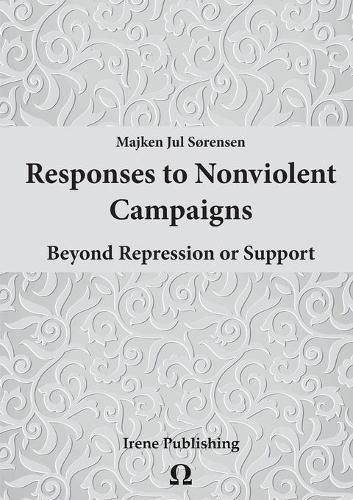Readings Newsletter
Become a Readings Member to make your shopping experience even easier.
Sign in or sign up for free!
You’re not far away from qualifying for FREE standard shipping within Australia
You’ve qualified for FREE standard shipping within Australia
The cart is loading…






This title is printed to order. This book may have been self-published. If so, we cannot guarantee the quality of the content. In the main most books will have gone through the editing process however some may not. We therefore suggest that you be aware of this before ordering this book. If in doubt check either the author or publisher’s details as we are unable to accept any returns unless they are faulty. Please contact us if you have any questions.
Nonviolent social movements and campaigns are frequently met with violent repression from their opponents and cheers of encouragement from their supporters. However, it is also common for both authorities and third parties such as foreign governments, international organisations and media to be much more nuanced in their responses. In an attempt to prevent communication between activists, Egyptian authorities closed down the internet and mobile phone networks during the uprising in 2011. In Serbia in the late 1990's, the opposition group Otpor was prevented from registering as a legal organisation and the activists were devalued and framed as drug addicts, terrorists and traitors. In Argentina in the 1970's, many members of the human rights organisation Las Madras de Plaza de Mayo were protected from being disappeared and killed because of the recognition they received from independent international organisations.
$9.00 standard shipping within Australia
FREE standard shipping within Australia for orders over $100.00
Express & International shipping calculated at checkout
This title is printed to order. This book may have been self-published. If so, we cannot guarantee the quality of the content. In the main most books will have gone through the editing process however some may not. We therefore suggest that you be aware of this before ordering this book. If in doubt check either the author or publisher’s details as we are unable to accept any returns unless they are faulty. Please contact us if you have any questions.
Nonviolent social movements and campaigns are frequently met with violent repression from their opponents and cheers of encouragement from their supporters. However, it is also common for both authorities and third parties such as foreign governments, international organisations and media to be much more nuanced in their responses. In an attempt to prevent communication between activists, Egyptian authorities closed down the internet and mobile phone networks during the uprising in 2011. In Serbia in the late 1990's, the opposition group Otpor was prevented from registering as a legal organisation and the activists were devalued and framed as drug addicts, terrorists and traitors. In Argentina in the 1970's, many members of the human rights organisation Las Madras de Plaza de Mayo were protected from being disappeared and killed because of the recognition they received from independent international organisations.